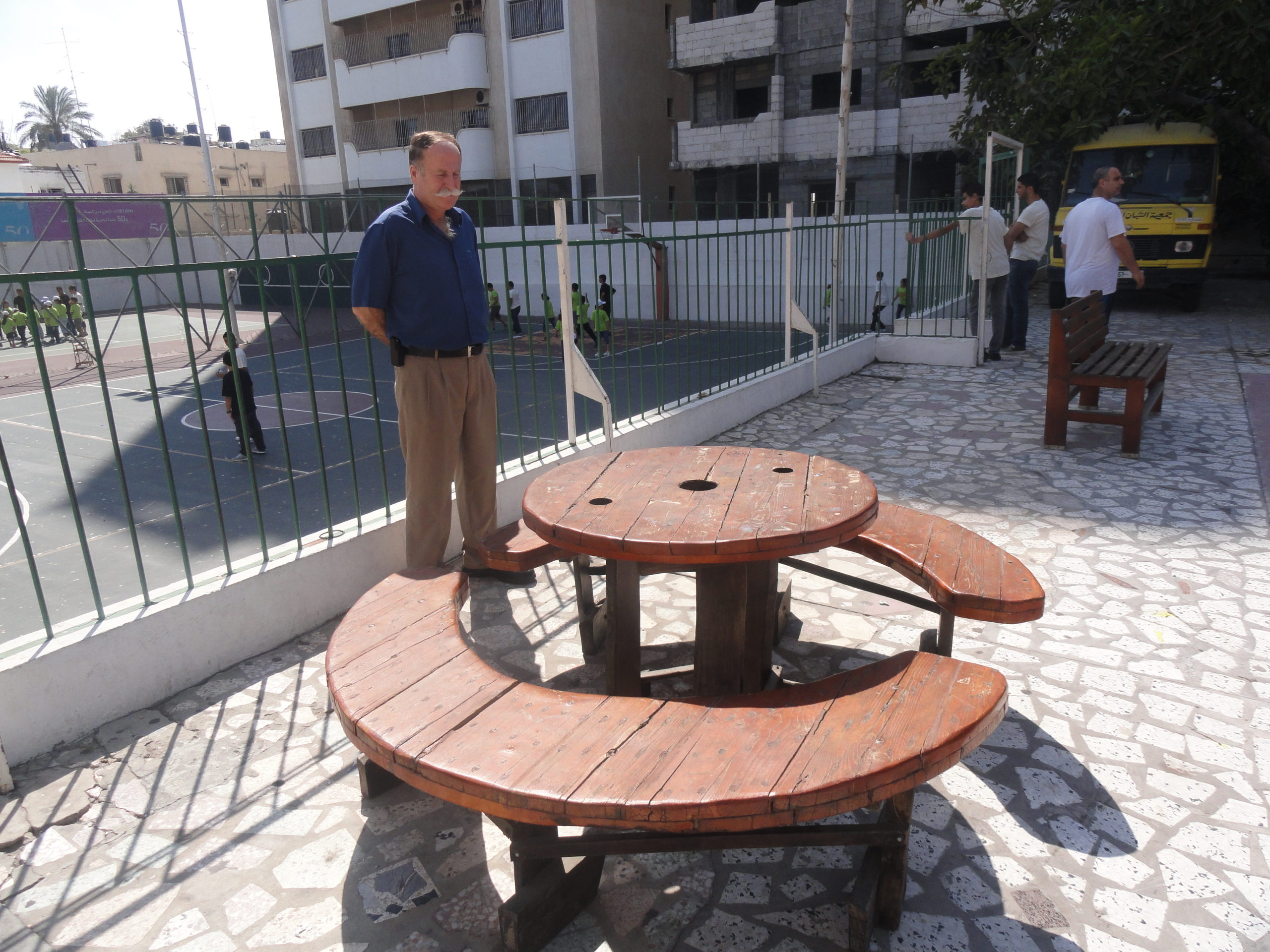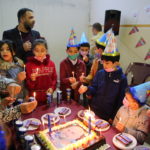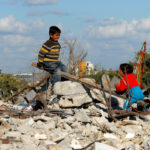Gaza’s summer camps start
In a beautiful start to the day, I visited the children’s summer games organised at Gaza’s YMCA. The club was full of laughter and play, which hit me like a wall of sound as I got to the premises from the car park. Issa, the Christian from Beersheba who’s family was exiled by Israel into Gaza, and who is also the head of the YMCA here, picked up a stray wire on our way in. Always in the detail, while always with the vision.
I was treated to a guided tour. Football, basketball, art, dance, a Gazan flavour of British Bulldog (but without the violence or the bruises) – you name it, and there was some flavour of it going on here. This was the prototypical summer camp, replicated by some of its own graduates all over the Gaza strip every year, to give the children there some fun and laughter in the midst of a tough siege and its accompanying poverty.
Not that you would have known inside the camp, with the smiles, the running, the laughs, the teasing. Sitting also in the Y were some of the elders from the strip, including one of our national basketball stars of maybe 50 years ago, one of Palestine’s most famous painters, and an assortment of other grandees and contributors, including Issa’s father, who amongst a very full and colourful life, also founded the YMCA in Gaza.
It was wonderful to see the games in full flight. Especially how the facilitators, no more than 17 or 18 years old many of them, were the same kids who had been at the camps in previous years. As were the leadership and organisers of the camp, in their early to mid-twenties, who had graduated through the same route. There was a real feeling of family and continuity. And most importantly, all with the Arabic drum, the tableh, beating out its distinctive Arabic beat and the occasional YMCA chant thrown in for good measure.
Seeing how happy the children were in this camp put into stark reality the enormity of the absence of so many of these camps this year, and how much they are missed by these children who have so little by way of organised fun available to them. This was punctuated by a visit we made to an ex-facilitator in a bedouin village later in the day. He described in the most tender terms how the children in his village and the surrounding ones used to love these games, and how the ‘games’ now provided in the area by the authorities were failing. Given that much of these official games are run purely on the grounds of religious interpretations, one could see how, as he told us, the games started with 500 enthusiastic children, of whom only 35 to 40 remained at the end. To a child, they said they hated these camps. When the remaining few at the end were asked why they were still there, it was not for love of the camps. Their response? “Because we can eat here”.
We have sponsored 4 summer camps of fun this year, run by the same organisers of the YMCA games. Issa rather unkindly forced me to say a few words to some of the facilitators during their training session. In Aabic. Now my Arabic last had a good run when I was 7 years old, so an improvised speech to a group of eager facilitators was not on my agenda. The facilitators though proved the patience that they were selected for by politely clapping in the right places, and so I was assured they’d be fine with the kids!
Our camps, those sponsored by other groups with the Canaan Institute, and the wonderful Games to Gaza team from the UK will get to between 800 and 1000 children. There are probably another 4 or 5 funded by other means happening. Until last year, 250,000 children were served by these games, so what we are doing is a drop in the ocean. It is probably too late now to get to more kids, as the training for the faciliators started today. But it would be fantastic to figure out how to do more next year. (You can read more about those camps, which we did manage to get under way, here)
That is if Gaza is still under siege, and is children in need of large scale organised activity. Let’s hope that’s not the case.


























Leave a Reply